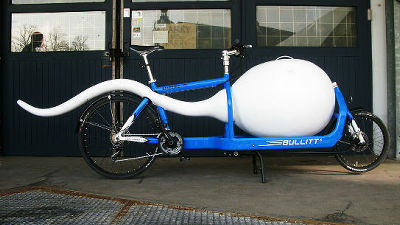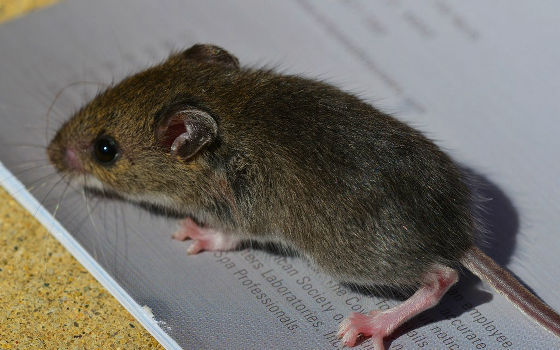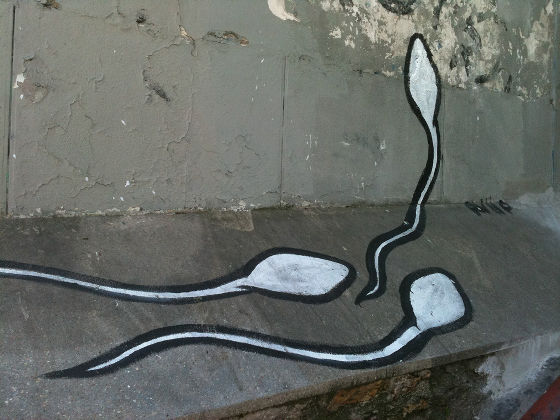Researchers announced that they succeeded in artificially producing spermatozoa, but voices of doubt

ByColville-Andersen
Chinese researchers artificially created the sperm of the mouse and succeeded in leaving offspring, on February 25, 2016 local timeCell Stem CellIt was announced in the magazine. The research content is expected to be utilized as a new method of infertility treatment, but on the other hand, other researchers have questioned the contents.
Researchers claim to have made artificial mouse sperm in a dish: Nature News & amp; Comment
http://www.nature.com/news/researchers-claim-to-have-made-artificial-mouse-sperm-in-a-dish-1.19453
Complete Meiosis from Embryonic Stem Cell-Derived Germ Cells In Vitro: Cell Stem Cell
http://www.cell.com/cell-stem-cell/fulltext/S1934-5909(16)00018-7
As a research artificially creating sperm, in 2011, a team of Professor Saito Noriaki of Kyoto University who studies functional fine morphology studies gathers primordial germ cells (PGC) as a source of sperm and egg from mouse ES cells Produced, when I returned PGC to the body of a mouse, it grew as a sperm in the body of a male, as an egg in the female bodyIt exists..
According to Professor Xiao-Yang Zhao, a developmental biologist at the Southern Medical University in China, and Professor Qi Zhou who works as an expert on cloning technology at the Chinese Academy of Sciences Animal Research Institute, etc., the research published this time is more than the work of Professor Saito It is said that the process carried out in is long.
That is, when cells collected from testis of Mus musculus of the early birth were added to PGC artificially created by the research team, it was confirmed after 14 days that sperm cells were similar. I injected the produced sperm cells directly into mouse eggs and succeeded in producing descendants. The born mouse was healthy even after 15 months passed and it seems that she could also leave descendants.

ByOrientalizing
Spermatogonia is rounded in shape, unlike the sperm of the head type, it has a maturity degree different from that of sperm, such as being unable to swim, but has finished an important development stage of meiosis and has a pair of chromosomes I will. Since one of the causes of male infertility is stopping meiosis, this research result is considered to be used as one of infertility treatments.
In response to this report, Professor Jacob Hanna, a stem cell scientist at Weitzmann Institute of Sciences in Israel, commented, "It is a very interesting and serious result," but on the other hand the voice of doubts about the study . Professor Allan Spradling of the Carnegie Institute says, "The story of directly injecting cells into eggs to make descendants is convincing, but newly created mice may have problems later" I said.
In addition, PGC made by this research was used for about 12.5 days when it was viewed as mouse cells, but in the research by Professor Saito about 9.5 days of development was used. Therefore, there is also a view that the development of PGC that used was more advanced than that of previous research, which may have resulted in the generation of sperm cells.
In addition, it usually takes 4 weeks for PGC to become spermatogonia, but it is also questioned that in China's research only an interval of 14 days was done.
Prof. Saito commented, "This paper must be received with extreme caution." Professor Takeshi Ogawa of Yokohama City University · Graduate School of Life and Medicine says it is "unbelievable" result, and we are going to try to reproduce it in the future.

ByGrace Hebert
According to Professor Zhou, it is normal to create a difference in the state of development in the method of injecting sperm cells made in a petri dish into living mice. However, Professor Saito points out the possibility that sperm cells may not be normal as accelerated speed as seen in this study.
In addition, Professor Zhou says "The next step is to make the same concept apply to humans", but since there is a big difference in the development of sperm in humans and mice, Professor Yi Zhang of Harvard Medical School "I will not be as easy as people imagine".
Related Posts:
in Science, Posted by darkhorse_log







